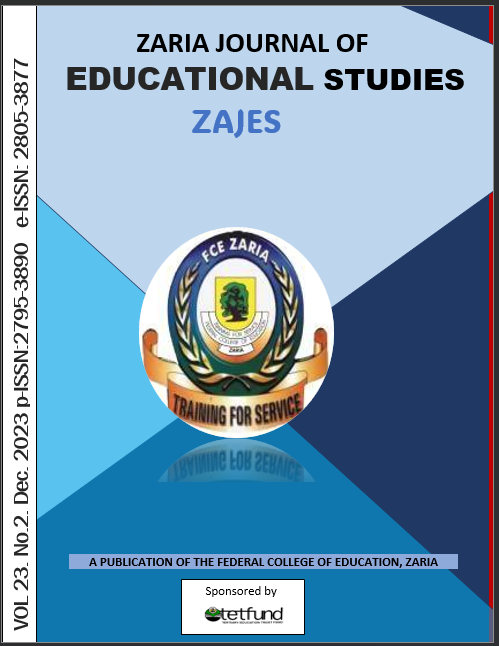Effect of Mother Tongue Instructional Strategy on Basic Science Students’ Performance in Upper Basic Schools in Ilorin Metropolis, Kwara State, Nigeria
Keywords:
Mother Tongue, Instructional Strategy, Basic Science Schools, Ilorin, Kwara StateAbstract
The aim of this research was to evaluate the effect of a mother-tongue instructional strategy on upper basic students' performance in Basic Science within Ilorin Metropolis, Kwara State, while also examining the moderating influence of gender. Specifically, the objectives of the study were to: (i) examine the differences in mean achievement between students in upper basic classes taught Basic Science in Yoruba and those taught in English; (ii) determine the mean achievement and the impact of gender on the performance of male and female upper basic students taught Basic Science in Yoruba. A pre-test/post-test control group quasi-experimental design was employed in the study. Three public junior secondary schools were randomly selected from Ilorin Metropolis. An intact class of JSS 3 students was chosen from each school, yielding a total of 181 students. The data collection instruments included the Mother Tongue Basic Science Achievement Test (? = .79), complemented by instruction guides. Analysis of the collected data was performed using analysis of covariance at a .05 significance level. Females comprised 51.4% of the participants. Significant differences in achievement were observed between students taught using the mother tongue strategy and those taught using conventional strategies in Basic Science, both in literacy and numeracy skills (F(2, 232) = 28.95; p < .05, partial ?2 = .233). Students exposed to the mother tongue strategy scored the highest on the Basic Science Achievement Test (mean score = 69.45). The mother tongue strategy proved effective in enhancing students' performance and achievement in Basic Science in Ilorin Metropolis, regardless of gender. The study concluded that students achieved better academic results in Basic Science when instructed in their mother tongue. Consequently, it is recommended that teachers consider adopting this strategy to improve student performance in Basic Science.

